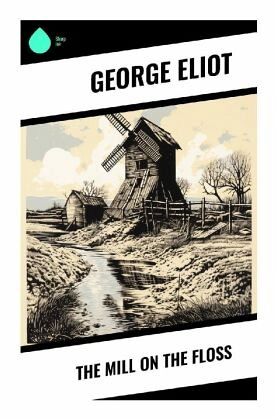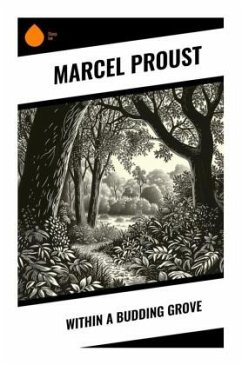
The Mill on the Floss
Versandkostenfrei!
Versandfertig in 6-10 Tagen
16,90 €
inkl. MwSt.

PAYBACK Punkte
0 °P sammeln!
In "The Mill on the Floss," George Eliot masterfully interweaves the complexities of familial relationships and societal expectations with the poignant exploration of self-identity and personal ambition. Set in the early Victorian era along the banks of the River Floss, the novel follows the tumultuous lives of siblings Tom and Maggie Tulliver as they navigate the constraints of their upbringing in a declining mill specifically situated in the fictional town of St. Ogg's. Eliot's rich, psychological insight and innovative narrative style, characterized by an omniscient yet deeply empathetic vo...
In "The Mill on the Floss," George Eliot masterfully interweaves the complexities of familial relationships and societal expectations with the poignant exploration of self-identity and personal ambition. Set in the early Victorian era along the banks of the River Floss, the novel follows the tumultuous lives of siblings Tom and Maggie Tulliver as they navigate the constraints of their upbringing in a declining mill specifically situated in the fictional town of St. Ogg's. Eliot's rich, psychological insight and innovative narrative style, characterized by an omniscient yet deeply empathetic voice, invites readers to engage with the moral dilemmas and emotional struggles that define the Tullivers' existence against the backdrop of social convention and personal desire. George Eliot, the pen name of Mary Ann Evans, was a pioneering Victorian novelist renowned for her keen intellect and advocacy for women's rights. Her own life, marked by a defiance against the strictures of gender roles, undoubtedly influenced her desire to portray strong, complex female characters like Maggie Tulliver. The personal experiences and philosophical inquiries that permeate Eliot's life underpin the narrative depth and ethical conflicts present within her writing, enriching the text's authenticity and emotional resonance. "The Mill on the Floss" is not just a tale of familial loyalty and personal struggle; it is a profound examination of the human spirit's resilience. Readers interested in the interplay of societal norms and individual aspirations will find Eliot's narrative both enlightening and moving. This novel remains a timeless exploration of the push and pull between personal desires and external pressures, making it essential reading for anyone who seeks a deeper understanding of the human condition.












